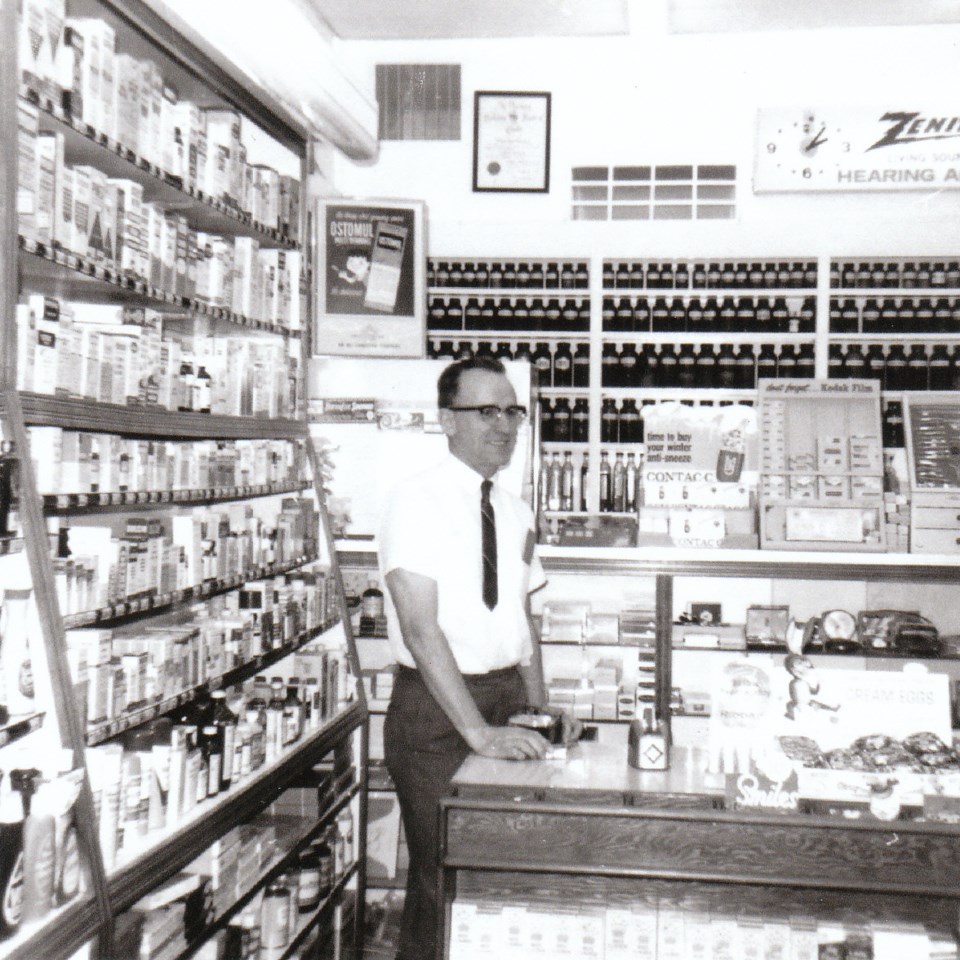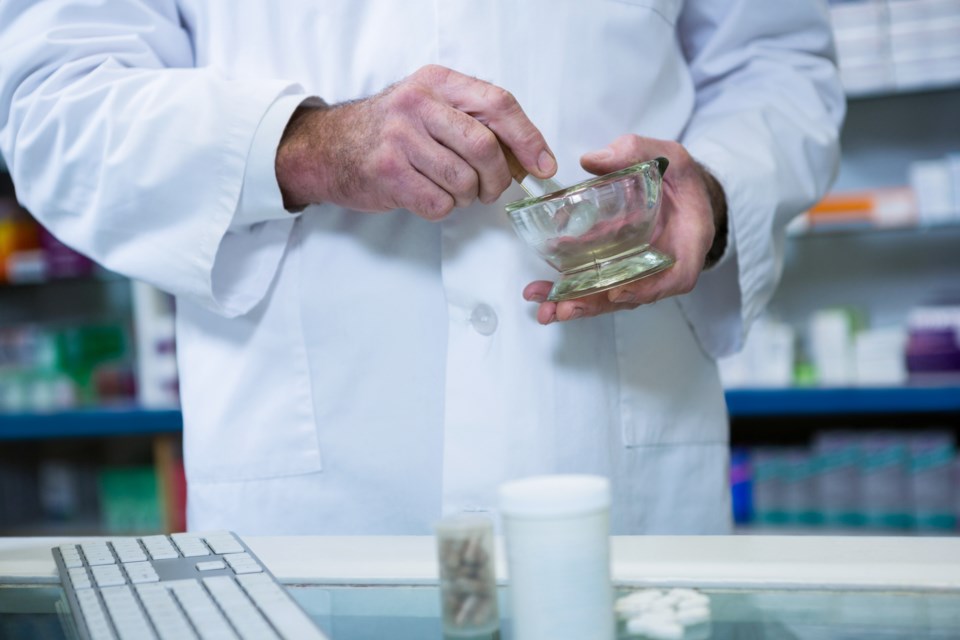Before medications were mass manufactured and readily available, the traditional role of the pharmacist, was to prepare and create medicines using individual ingredients for people who came to them with prescriptions for their ailments.
“When you think of the roots of pharmacy, before everything was mass-produced, pharmacists were compounding. They were making the medications that were needed from raw ingredients and that’s essentially what compounding is,” said Melissa Foden, pharmacist and owner of Stuart Ellis IDA Pharmacy in Collingwood, where they specialize in the art and science of compounding.

Compounding Foden said, is the science of making custom medications that are tailored to the individual’s unique needs that cannot be made with commercial products. Pharmacists have the ability to create medications customized for strength, form (e.g.; suspension, capsule, suppository or topical creams), flavour and non-medicinal ingredients, all of which can be tailored to the individual’s needs.
“If there is a dosage that is not commercially available we can tailor it based on the needs of the patient,” she said. “Also, for those who have allergies where they can’t tolerate some of the ingredients in a medication, lactose for example, we can make it so the medicine doesn’t contain that ingredient.”
With the advent of large drug manufacturers, mass-producing medicines changed the world of pharmacy over time, Foden said that what hasn’t changed is the idea of compounding, One medication doesn’t always fit all, and certain people or pets can benefit from compounded medicine.
There are several reasons, and benefits, for people choosing to take compounded medicine
There are many reasons why people may need compounded medication. For example, Foden said they create a lot of oral suspensions that are not commercially available. This way they can be made suitable for children, adults with swallowing difficulties or even pets.
They also prepare hormone creams for those looking for something more tailored than the standard commercially available hormone replacement therapy products. This means that the patient has consulted with their physician, naturopath or other prescriber, and they have been prescribed bioidentical hormones (i.e. estrogen, progesterone) in a ratio specific to that individual’s needs.
Another thing they prepare often are pain management creams. Foden said, depending on the individual and what type of pain they’re having, they customize what ingredients go into it specific to their type of pain and the area they’re applying it to. Applying cream topically to the affected area can minimize side effects over taking oral pain medications.
Compounded medicine is a safe, heavily regulated, and pursuant to a prescription from a physician
While they compound the medications onsite, Foden said they still require a prescription from a licensed prescriber the same as they would for a commercially available pharmaceutical product. The pharmacists can work with the prescriber and offer recommendations of what they think may be appropriate for the patient.
With all pharmacies in Ontario regulated by the Ontario College of Pharmacists, there are recent changes in the regulations and standards around compounding to ensure its safety for the public as well as for those preparing the products.
Every ingredient used is regulated and safe when used appropriately. Compounding pharmacies must have adequate facilities that are subject to regular inspections. Policies and procedures must be in place for general compounding as well as for each formula used.
“There has to be a reason why we’re compounding, we can’t compound a slight variation of a medication that wouldn’t be therapeutically relevant,” Foden said. “We must also have defined formulas for each compound. We can’t just use a pinch of this and a pinch of that, everything we make has strict regulations around it.”
These strict regulations and standards are a reason why they are the only pharmacy in Collingwood that specializes in compoundings. Foden said in the last number of years, The Ontario College of Pharmacists have imposed a lot of regulations and restrictions on where they can compound, how they can compound, what they compound, what is needed to compound, and what training is needed.
“When I first started in pharmacy over 20 years ago, we could make basic compounds on the back counter with very little personal protective equipment, but this is no longer the case, and that’s why a lot of pharmacies now are saying, ‘You know what, it’s not worth my time to put in all these policies, procedures, training and physical areas in their pharmacies,’ as not all of them have the designated space,” she said, adding that this is why compounding pharmacies aren’t as common as they used to be, despite being beneficial to so many.
If you’re interested in learning more about a compounding pharmacy and how it can be beneficial to you, contact Stuart Ellis IDA Pharmacy, or call them at 1-705-445-4711 with any questions you may have.
